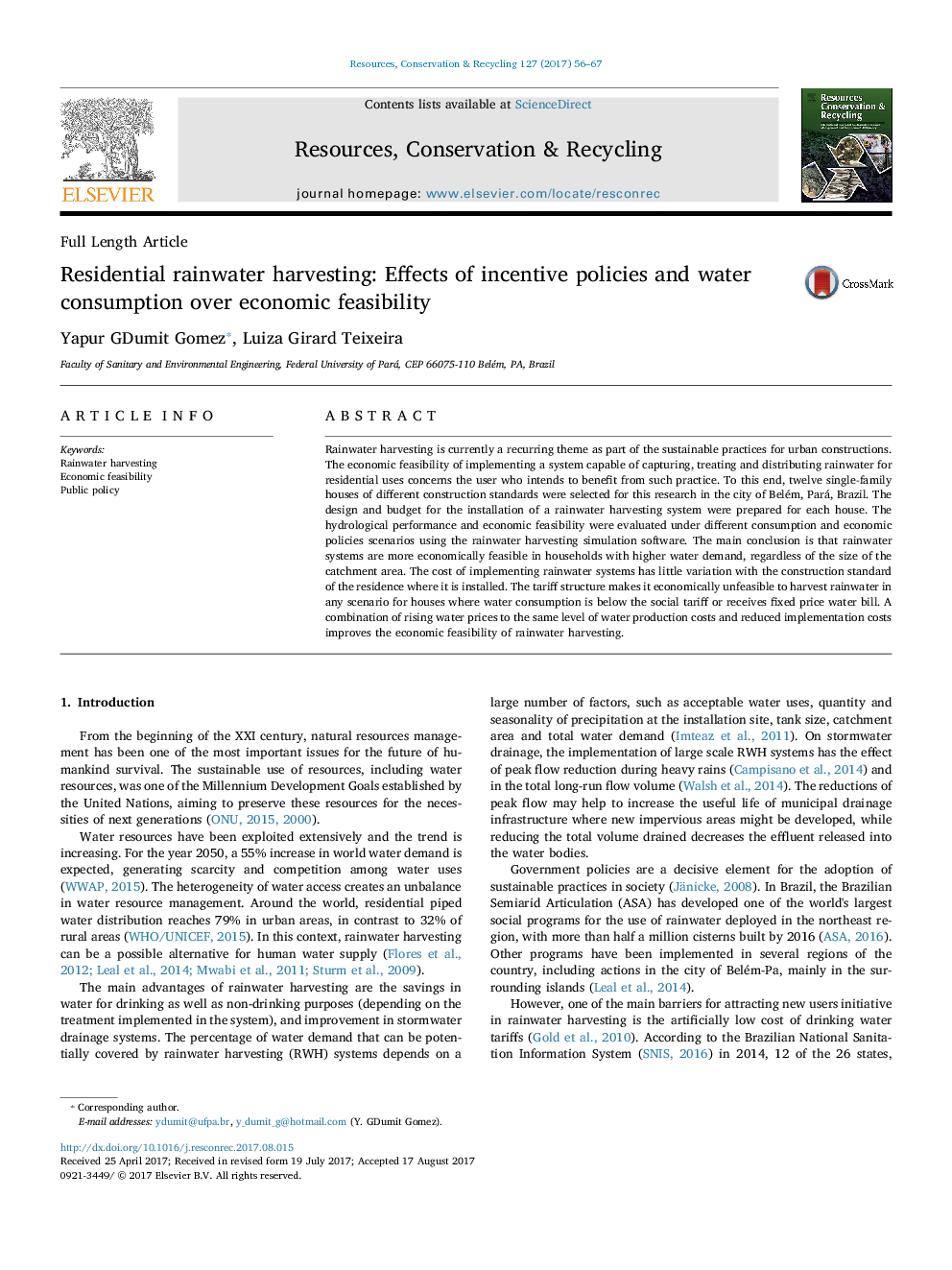ترجمه فارسی عنوان مقاله
برداشت بارانی در محل زندگی: تاثیر سیاست های انگیزشی و مصرف آب بر روی امکان سنجی اقتصادی
عنوان انگلیسی
Residential rainwater harvesting: Effects of incentive policies and water consumption over economic feasibility
| کد مقاله | سال انتشار | تعداد صفحات مقاله انگلیسی |
|---|---|---|
| 112225 | 2017 | 12 صفحه PDF |
منبع

Publisher : Elsevier - Science Direct (الزویر - ساینس دایرکت)
Journal : Resources, Conservation and Recycling, Volume 127, December 2017, Pages 56-67
ترجمه کلمات کلیدی
برداشت آب باران، امکان سنجی اقتصادی، سیاست عمومی،
کلمات کلیدی انگلیسی
Rainwater harvesting; Economic feasibility; Public policy;

